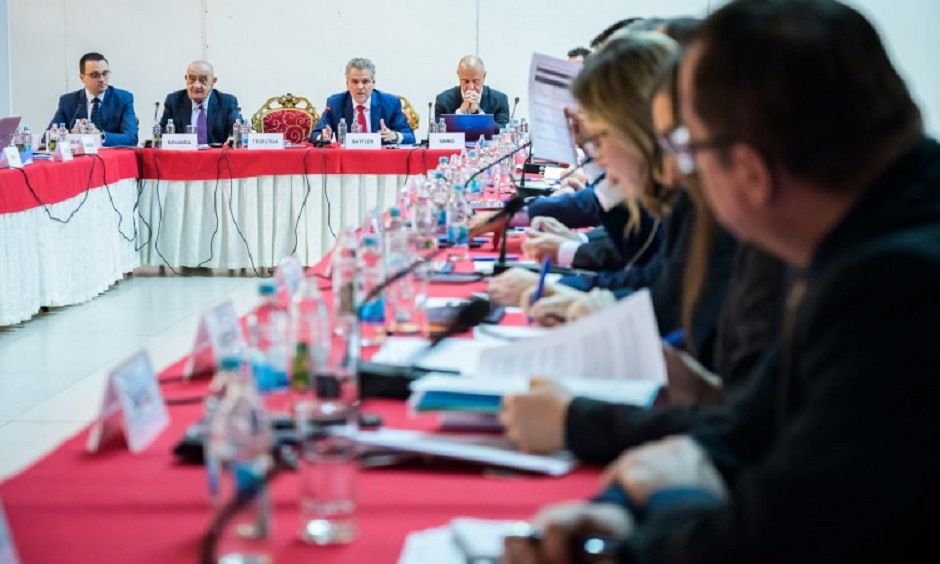
Bosnia could solve the main issues which are making citizens leave the country but lacks the political commitment to do so, the EU Special Representative wrote in his blog published on Friday, stressing the urgency of finally implementing a set of socio-economic reforms local political leaders already agreed to.
In his blog post titled 'No Change, No Gain', Johann Sattler pointed out that Bosnian citizens want to enjoy opportunities such as good jobs, quality education, sufficient pensions and functional rule of law just as much as EU citizens, but “too many have already left” the country pursuing this. “They are not only motivated by a lack of employment opportunities, but perhaps even more by constant economic and political insecurities that make life very difficult.”
He argued that “the shortcomings of governance have come to outweigh the opportunities in people’s minds and in their lives" and that political leaders “cannot afford to ignore the fact" that Bosnia's population shrinking rapidly.
But according to the EU Ambassador, it does not have to be like that. He wrote of a meeting he had with representatives of the Council of Ministers and Entity governments as well as several other ambassadors who wanted help local representatives drive the socio-economic reforms forward.
Sattler pointed out that this happened after the European Commission proposed a new methodology on EU enlargement with a strong emphasis on the economy and plans to increase funding “for those countries achieving progress” and that it would also improve the quality of lives of citizens.
He also reminded that Bosnia’s authorities have “committed to enhance the implementation of socio-economic reforms, while the EU and other international institutions pledged to support this process" and that “a list of actions in the areas of economic governance, education, energy, environment, and others, was endorsed.”
But soon after those positive developments, Bosnia plunged into another political crisis.
“My excitement with this positive outcome soon dampened. While we were discussing reforms and the future, another political crisis emerged in the country. The overall tone of our discussion was expectedly much grimmer in light of these developments,” Sattler wrote, adding that he asked himself whether this would delay the reforms focused on improving the quality of life of citizens once again.
“Things have to change. Quickly.” Sattler declared, adding that it has to happen in months and not years.
While there are many priorities, those that should be tackled first are the 66 short term priorities outlined in the Opinion of the European Commission.
All of this can be done and for the citizens who “enjoy little or no power or privilege” but it would also help businesses, he wrote.
Sattler gave an example, arguing that Bosnia should introduce a uniform level of maternity leave benefits “starting by harmonising the definitions of maternity, paternity and parental leave.”
“No woman in this country should ever have to choose her job over being pregnant out of a fear that she will not be able to provide for her family. No man should be prevented from taking paternity leave to care for his child.”
He went on to point out the importance of improving the governance of public enterprises to improve Bosnia’s growth potential and “stop putting more strain on scarce government’s financial resources.”
Public companies should be restructured and should openly compete with the private sector in order to achieve lower prices and better services, he argued, giving the example of the Sarajevo International Airport and that citizens “expect more connections, better services and more competitive fares.”
The 66 measures which are in line with the reforms both Entity governments agreed to and the Council of Ministers endorsed in January “represent a list of things that obviously must be addressed urgently.”
The EU accession process contributes to the stability, justice and safety for all and Sattler expressed commitment to continuing to promote it.
“This country is not the black hole of Europe. It is not a lost case. Its people may be tired of hearing about all the necessary reforms or may feel overwhelmed by so many problems,” he wrote.
“Yes, they are many, but so are solutions. It is definitely worth the effort,” he concluded.
Kakvo je tvoje mišljenje o ovome?
Učestvuj u diskusiji ili pročitaj komentare





 Srbija
Srbija
 Hrvatska
Hrvatska
 Slovenija
Slovenija







